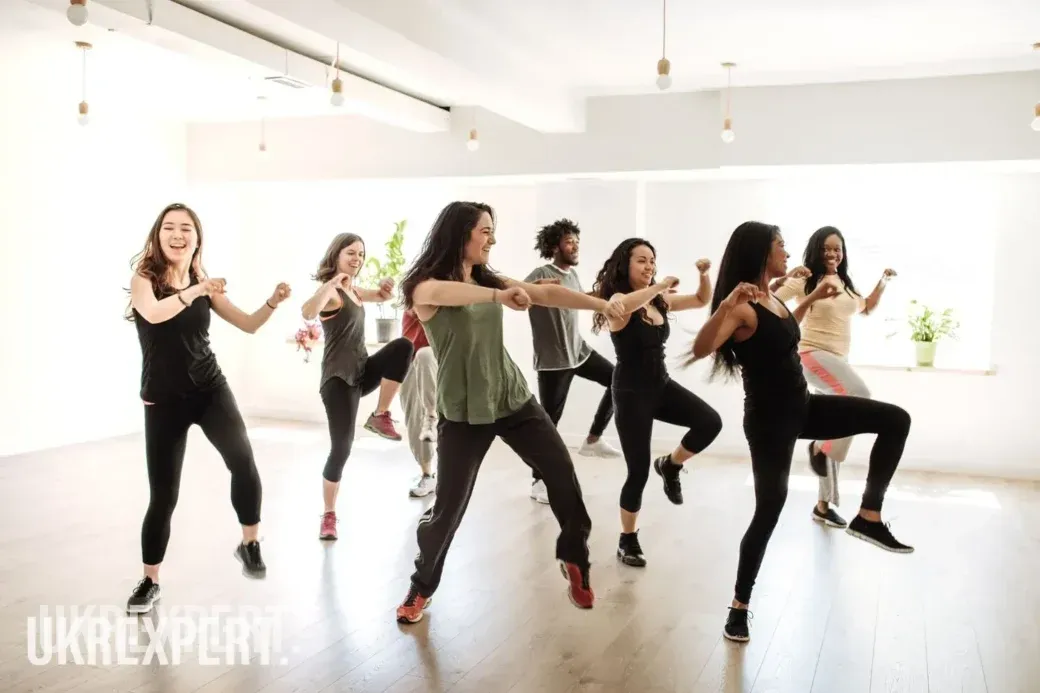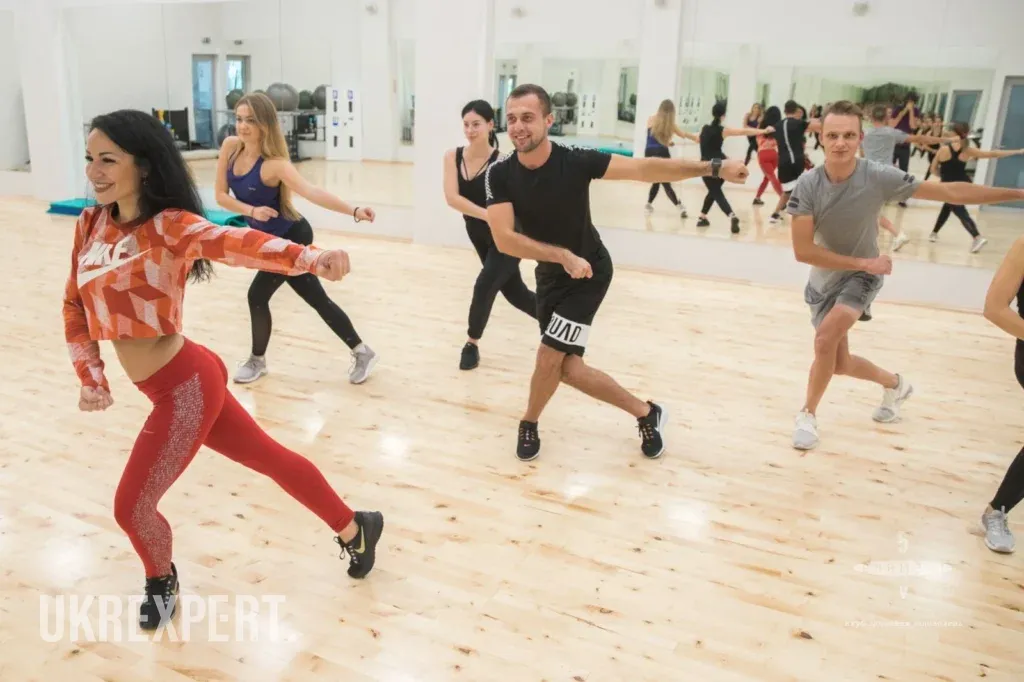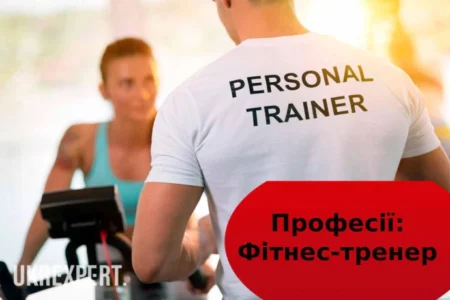
What is Zumba and how is it useful? 7 reasons to do Zumba

Zumba is a physical activity that boldly combines elements of dance and fitness. This popular type of group training is based on rhythmic movements to music. The idea is to develop physical fitness and have fun.
The main task of Zumba is not necessarily to perform precise dance steps, but to enjoy moving to rhythmic music and simultaneously being physically active. Zumba is suitable for different fitness levels and can be implemented as part of a healthy lifestyle.
Reasons to take up zumba
Zumba not only helps to improve physical fitness, but also creates a positive workout experience that motivates you to be physically active on a regular basis. Here are some reasons why many people enjoy Zumba:
- Entertainment and fun. Zumba offers energetic dance moves accompanied by rhythmic music. This approach makes training interesting and fun, which contributes to the enjoyment of physical activity.
- Stress reduction. Exercise helps to produce endorphins, natural chemicals that boost mood and reduce stress.
- Cardiovascular health. Zumba includes intense cardio exercises that improve blood circulation and strengthen the heart.
- Guaranteed variety. The variety of musical styles and dance moves of Zumba allows you to avoid monotony and boredom that can occur with other types of fitness.
- Calorie burning. Zumba is a useful form of exercise for burning calories. Intense movements and dancing help you improve your fitness and stay healthy.
- Group dynamics. Participation in group classes provides a positive atmosphere and serves as a source of motivation. You can feel the support and enthusiasm of other participants who also enjoy Zumba.
- Accessibility for different levels of training. Zumba is for everyone, regardless of fitness level. Participants can choose the intensity of their workout and adapt it to their own needs.
Zumba classes are perfect for those people who are looking for a non-standard approach to physical activity. Zumba does not require any specific dance or fitness experience and is accessible to everyone.

Read also our article: Who is a fitness trainer and how to become one?
Varieties and variations of zumba
Zumba has several varieties and variations that include different elements of dance, fitness, and music. Here are the main types:
- Zumba Fitness. This is the main and most common option. It includes rhythmic dance moves to Latin American tunes.
- Aqua Zumba. Training takes place in the pool, where zumba dance moves are combined with water resistance. This greatly eases the load on joints and muscles.
- Zumba Toning. Dumbbells or special toning sticks are added to the regular zumba dance to increase the intensity and muscle training.
- Zumba Kids & Kids Jr. Aimed at children, this version includes fun and simple dance moves designed to develop coordination and activity.
- ZIN Jam. These are intensive workshops for instructors where they can learn new moves, music and create their own combinations.
- Zumba Gold. Designed for older people or those looking for less intensity, Zumba uses the same rhythms but with less speed and simplicity.
- Strong by Zumba. A class in which movements are synchronized with musical rhythms, but it is not a dance class. This zumba is focused on strength intensity and improving physical fitness.
- Zumba Sentao. This type of Zumba training uses chairs to increase the intensity of movements and activate the body.
- Zumba in the Circuit. A combination of dance zumba with wheel training and strength training on stations.
Each of these types has its own peculiarities aimed at different needs and levels of training of participants.
Tips for the first Zumba training
When preparing for your first class, you should buy comfortable and breathable clothes that allow you to move freely. It is also important to wear stable shoes with soles designed for fitness.
At the first class, you don’t need to worry about how well you perform each movement, because the main goal is to have fun and enjoy the process. Try to keep up with the pace of the group, but don’t overdo it. If you feel tired or uncomfortable, stop and rest.

Feel free to take short breaks for rest and water. Remember that the first few sessions can be a challenge, but over time you will become more relaxed and enjoy this fun form of fitness.
Conclusions
Zumba is an exciting and energetic form of fitness that combines dance, music, and physical activity. This popular trend has become an important part of the global fitness community.
Zumba can be an attractive choice for those who are looking for not only effective physical activity, but also a fun, exciting way to work out. Regular workouts will burn fat and provide a boost of good mood.
Questions and answers
People with certain medical conditions or health issues may need to consult a doctor before starting a Zumba workout: for example, contraindications include cardiovascular disease, joint injuries or pain, pregnancy, back problems, hearing impairment, and anatomical limitations (such as foot or knee problems that require individualized attention).
The recommended training time may vary depending on individual physical abilities and goals. For those who are just starting to practice Zumba, it is recommended to start with shorter workouts, for example, 20-30 minutes per session, 2-3 times a week. Over time, the duration can be increased.
Zumba has no requirements for clothing. It is important that you feel comfortable and that your clothes do not hinder your movements.
No special physical training is required. Even a person who has never been actively involved in sports can try Zumba.
The number of calories you can burn during a Zumba workout depends on several factors, including your weight, workout intensity, session length, and overall physical activity. On average, a Zumba class can burn between 300 and 600 calories per hour.
The author of the Portal UKRexperts
Співпраця - текст
We are sure that knowledge should be accessible to everyone, and that is why UkrExperts strives to be your first choice when it comes to enriching intellectual potential.




